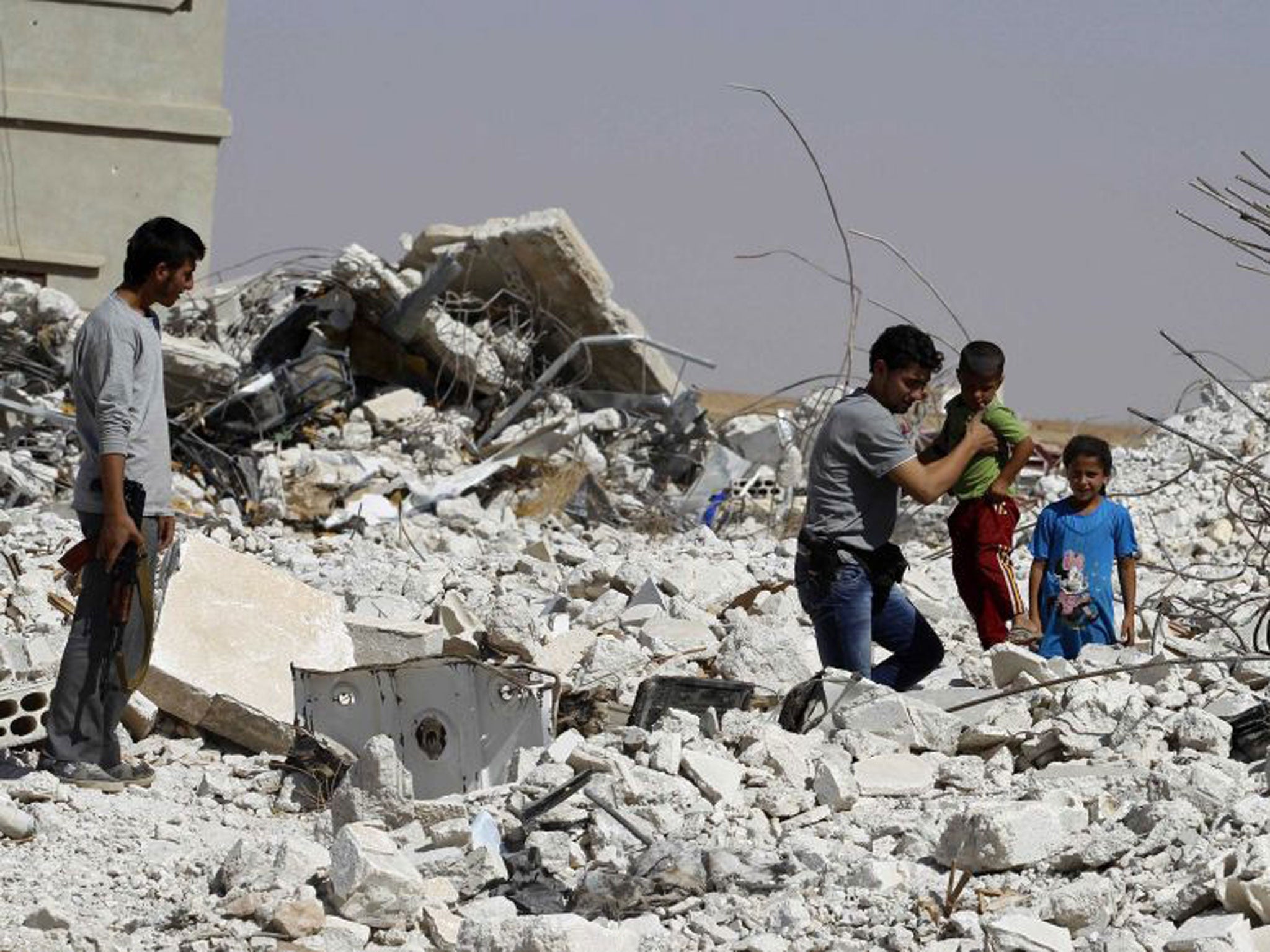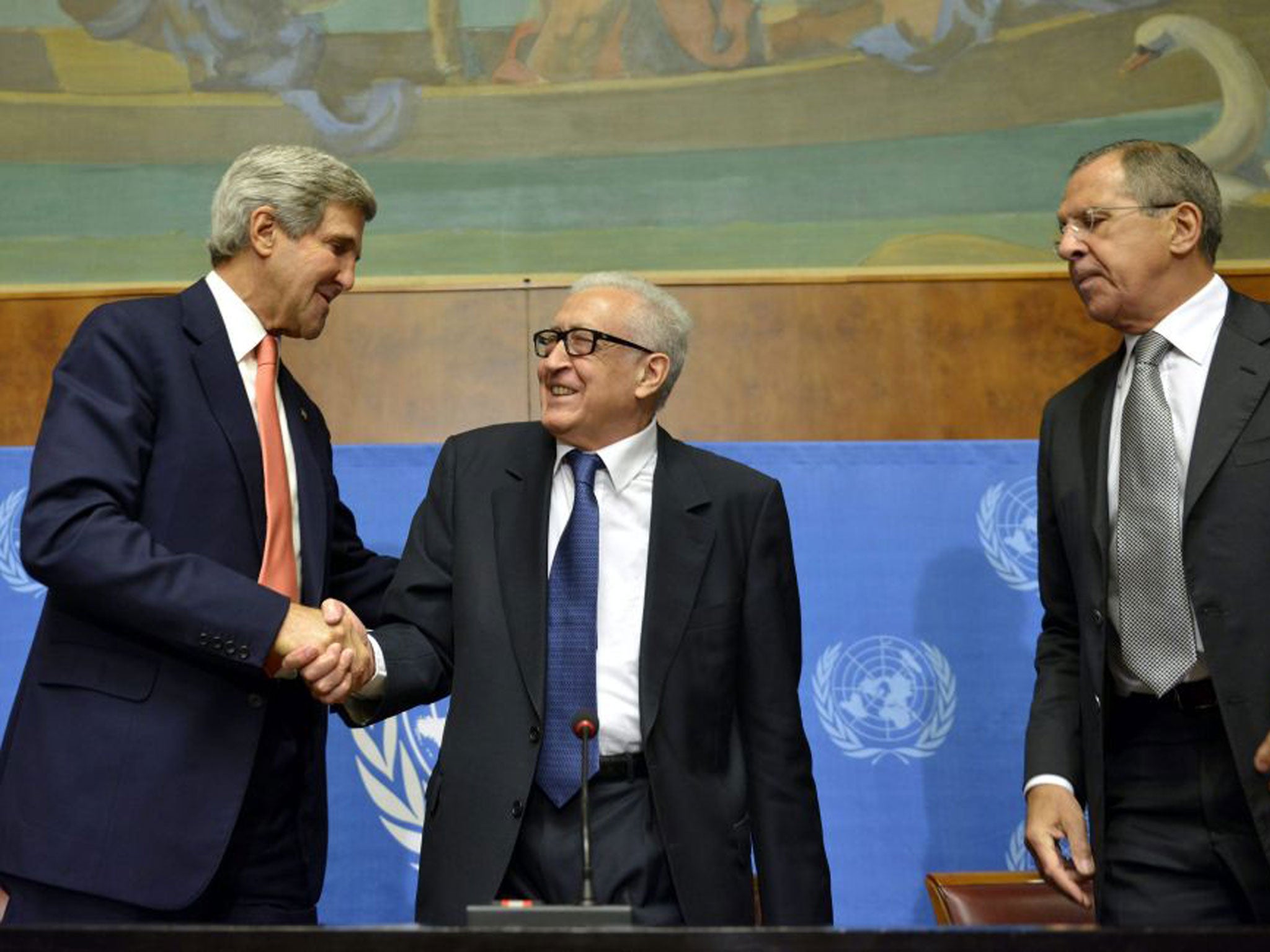Syria crisis: Elite Assad troops of 'Unit 450' accused of hiding chemical arsenal
Regime’s formal offer to meet terms of weapons treaty could be undermined by alleged activities of ‘Unit 450’

Your support helps us to tell the story
From reproductive rights to climate change to Big Tech, The Independent is on the ground when the story is developing. Whether it's investigating the financials of Elon Musk's pro-Trump PAC or producing our latest documentary, 'The A Word', which shines a light on the American women fighting for reproductive rights, we know how important it is to parse out the facts from the messaging.
At such a critical moment in US history, we need reporters on the ground. Your donation allows us to keep sending journalists to speak to both sides of the story.
The Independent is trusted by Americans across the entire political spectrum. And unlike many other quality news outlets, we choose not to lock Americans out of our reporting and analysis with paywalls. We believe quality journalism should be available to everyone, paid for by those who can afford it.
Your support makes all the difference.The authenticity of Syria’s offer to relinquish its chemical weapons arsenal was being tested today as the top envoys of Russia and the US, Sergei Lavrov and John Kerry, held a second day of talks in Geneva aimed at getting the process started.
As the Syrian regime formally asked for technical assistance to help it meet the treaty’s obligations, scepticism about its real intentions was deepened by reports that an elite group fiercely loyal to President Bashar al-Assad known as Unit 450 has been dispersing his chemical weapons stockpile to as many as 50 different sites all across the country, just one day after the regime said it would join the Chemical Weapons Convention. This would present new difficulties in both implementing the plan now under discussion in Geneva or, were it to fall apart, launching a US bombing campaign that could be effective.
The Syrian ambassador to the United Nations, Bashar Jafaari, said his country was “legally speaking” bound by the Convention by submitting papers to join it on Thursday. Russian President Vladimir Putin welcomed the move. He said last night it was “an important step towards the resolution of the Syrian crisis, this confirms the serious intention of our Syrian partners to follow this path”.
However, a statement from the main Western-backed Syrian opposition group, the Syrian National Council, said the regime’s move “comes as too little, too late to save civilians from the regime’s murderous intent”. It said the regime must not be allowed to use diplomacy “to indefinitely stall international action while it continues its policy of widespread violence against civilians”.

Syria seemed to be at pains to bolster the credibility of its acceptance of the Russian proposal for it to hand over its arsenal and avoid American strikes. A spokesman for the Office of Prohibition of Chemical Weapons (OPCW) in The Hague confirmed that Syria’s deputy foreign minister, Faisal Mekdad, had contacted it with a request for technical assistance.
But there were new warnings in Washington that although it is running with the Russian proposal to rid Syria of its weapons, the US has not taken strikes off the table.
In a Bloomberg Television interview due to be aired on Sunday, House Democratic Whip Steny Hoyer said President Barack Obama may have a stronger hand to strike if the talks fall apart, even without explicit congressional approval for them. “People would say, ‘Well, he went the extra mile, he reached out, he took the diplomatic course that people had been urging him to take – and it didn’t work,’” he said. “And therefore... the only option available to us to preclude the further use of chemical weapons and to try to deter and degrade Syria’s ability to use them is to act.’”
UN Secretary General, Ban Ki-Moon, told reporters this evening that a UN inspectors’ report due to be released on Monday will be “overwhelming” in identifying chemical weapon use in the Syrian conflict, which has claimed the lives of more than 100,000 people. He did not say if the regime was responsible for the 21 August attacks nor whether the report would assign blame, which was not part of the inspectors’ remit. But he noted that Assad had “committed many crimes against humanity”.
In Geneva, Mr Kerry and Mr Lavrov in principle agreed to resume trying to convene a peace conference involving the regime and the different rebel groups to be dubbed ‘Geneva 2’ and said they would discuss it again on the sidelines of the United Nations General Assembly in 10 days time. Mr Kerry said however that the prospects of a conference “will obviously depend on the capacity to have success here in the next day, hours, days, on the subject of the chemical weapons”.
* The FBI has issued an alert to petroleum storage operators to be on the alert for “potential terrorist activities” at – or close to – their plants, the Petroleum Marketers Association of America told its members yesterday.
Join our commenting forum
Join thought-provoking conversations, follow other Independent readers and see their replies
Comments